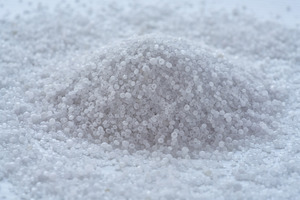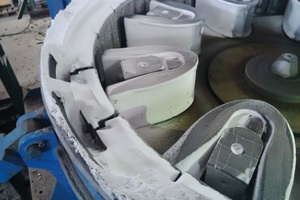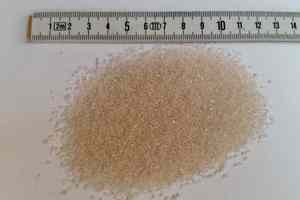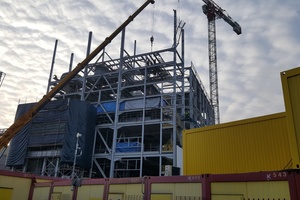Simplified process for the fertilizer production
For the very first time, Czech fertilizer producer Lovochemie A.S. is grinding its ammonium sulfate using a rotor impact mill made by BHS-Sonthofen. With the help of this technique, the company has been able to replace a number of its regular process steps. The system’s strength lies in its highly consistent grading curve and low cost of operation.
The fertilizer industry plays a key role in increasing agricultural yields worldwide. While carrying out the construction of its new production facility for fertilizer, Lovochemie – the world’s largest fertilizer producer – scoured the market for a machine that could achieve the desired grading curve while ensuring consistent, sustainable quality. Ideally, the system would also simplify the production process in general. The machine should also eliminate the need for additional screens to sift out oversized grains. Working in cooperation with BHS-Sonthofen, Lovochemie was inspired to try the robust grinding technology commonly used in the building industry. BHS rotor impact mills have been used in other applications, for example, in the production of gravel, and had gained a reputation as an affordable and reliable solution. However, the technique had never been used to mill ammonium sulfate.
Crushing and grinding tests with the rotor impact mill
One unique challenge of this crushing process is the fact that the salt is delivered in open trucks or train cars. The salt may absorb moisture from the air during transportation and storage, increasing the likelihood of agglomeration. A reliable process would be required to break down any agglomerated material. BHS carried out a number of crushing and grinding tests with an RPM-type rotor impact mill at its technical center in Sonthofen, Germany. “The machine proved a reliable tool for grinding down the feed material to the desired size, with highly consistent results,” noted Helmut Schorn, Area Sales Manager at BHS. “The tests showed that an additional screening process was not required.”Based on the test results, BHS recommended the use of a rotor impact mill of type RPM 1113 with an electrical connection value of 132 kW. The machine can be used to crush minerals with feeding sizes of up to 56 millimeters. It features a standard configuration with a housing composed of commercially-available structural steel. In addition, Lovochemie selected an optional coating for the machine’s outer surfaces to protect the system from corrosion caused by the ammonium salt. This coating is also used in maritime applications.
Rotor impact mill simplifies fertilizer production
The defining feature of the BHS rotor impact mill is its impeller rotor, which is the only one of its kind in the world. The feed material is loaded into the top center of the machine. When it impacts the rotor, the material is accelerated towards the outside by means of centrifugal forces; there, the horseshoe-shaped hammers engage it and throw it against the anvil ring. In the milling gap, it is crushed as a result of the impact and shearing forces. The material leaves the rotor through the gap and falls down through two outlet chutes.
Highly consistent grading curve and quality end product
BHS commissioned the system in April 2017. The machine crushes up to 35 metric tons of ammonium sulfate each hour. Materials with feeding sizes of up to 2 millimeters are crushed to a maximum grain size of 0.2 millimeters. The machine runs continuously 24 hours a day, five days a week, and fulfills all of the customer’s needs to their complete satisfaction. The unique functional principle of the BHS rotor impact mill produces a highly consistent grading curve and an end product of excellent quality.
Our experts are at your disposal at any time for process consulting and technical questions. More information can be found on our website www.bhs-sonthofen.com.
Please visit also our YouTube-Channel!





